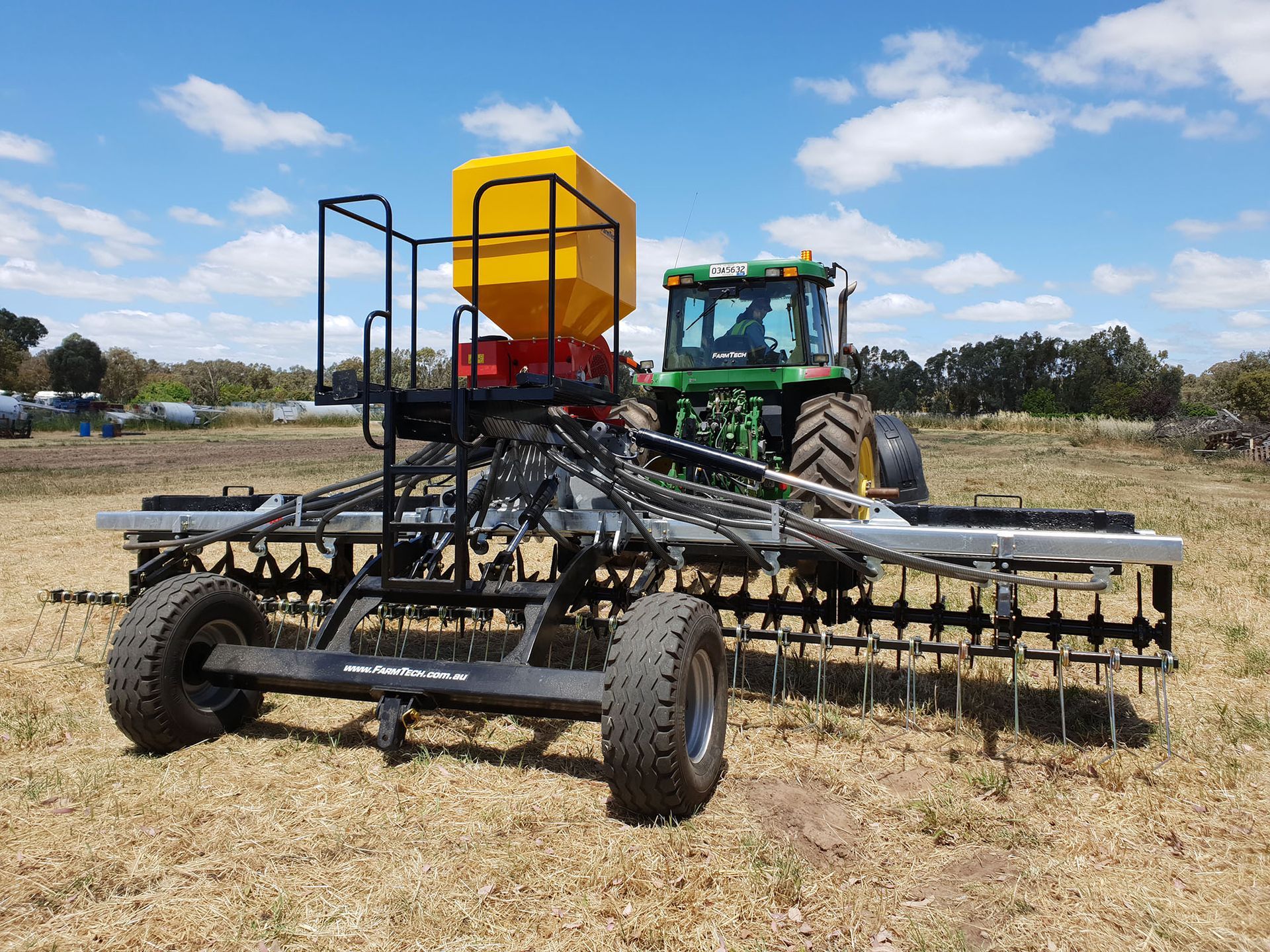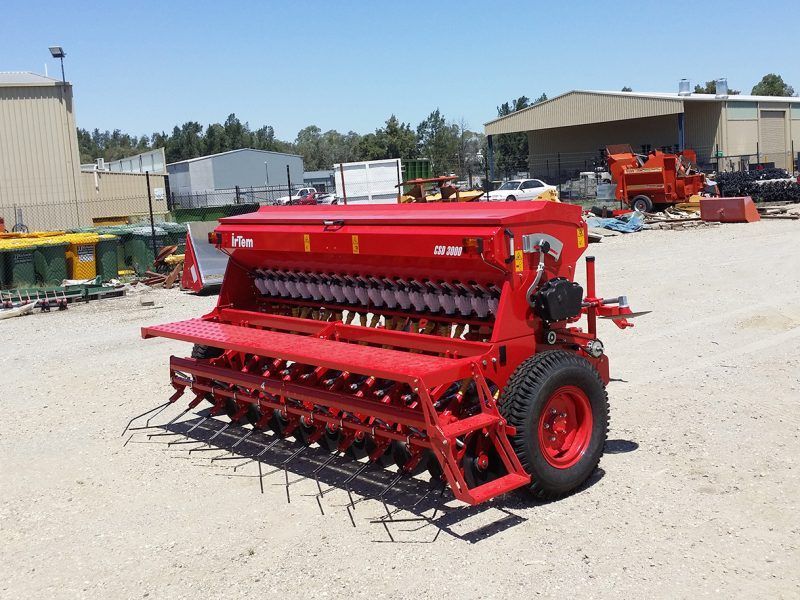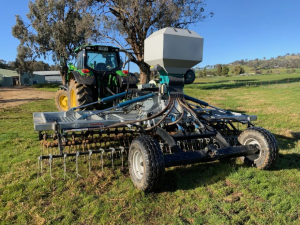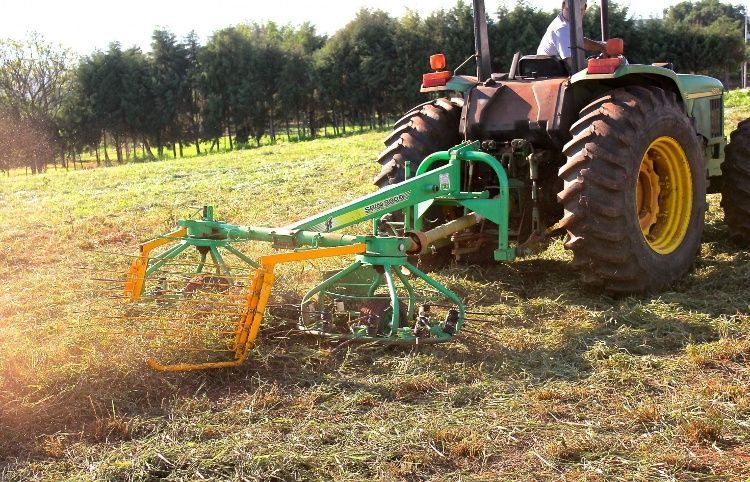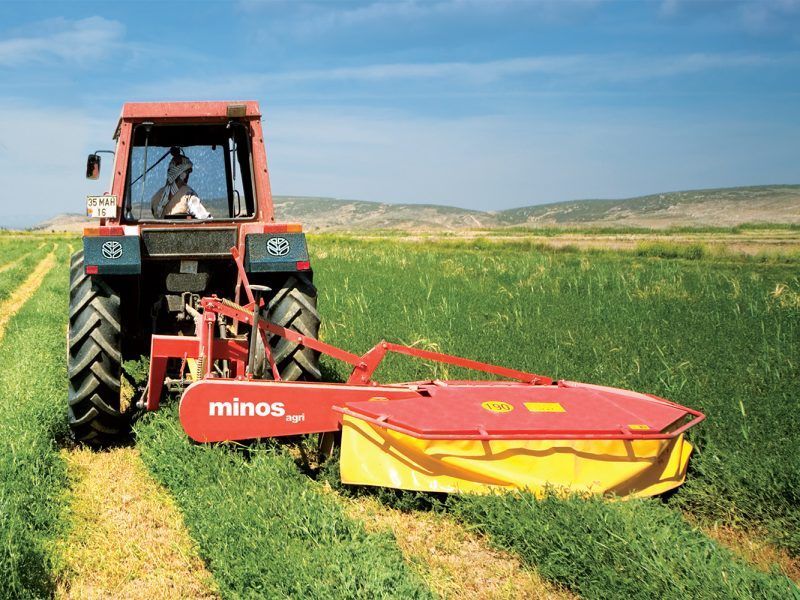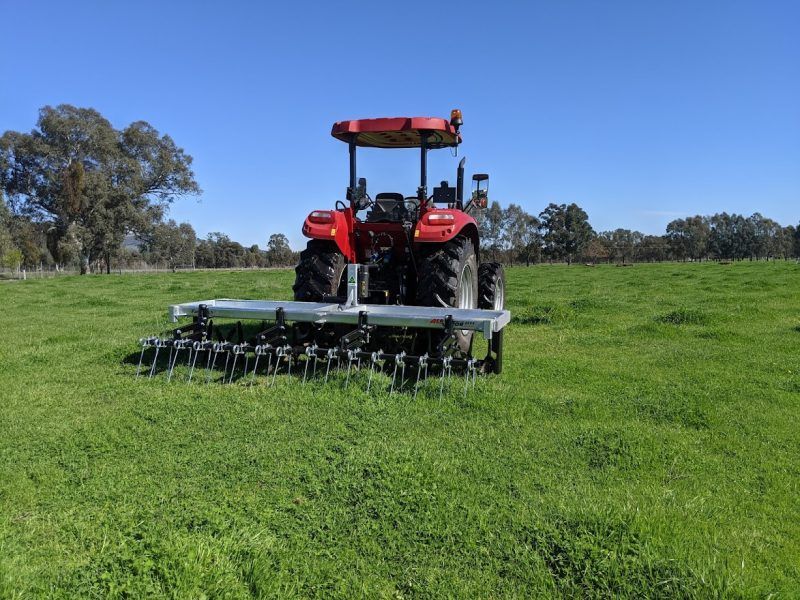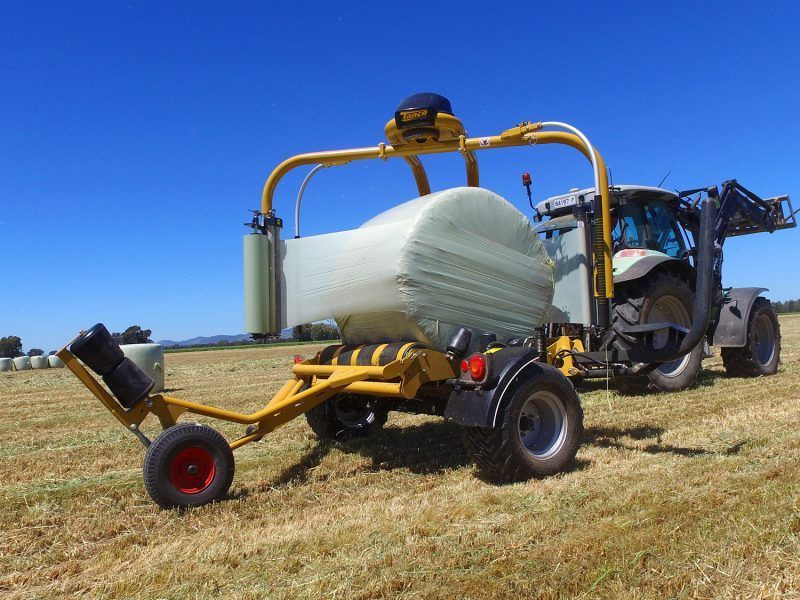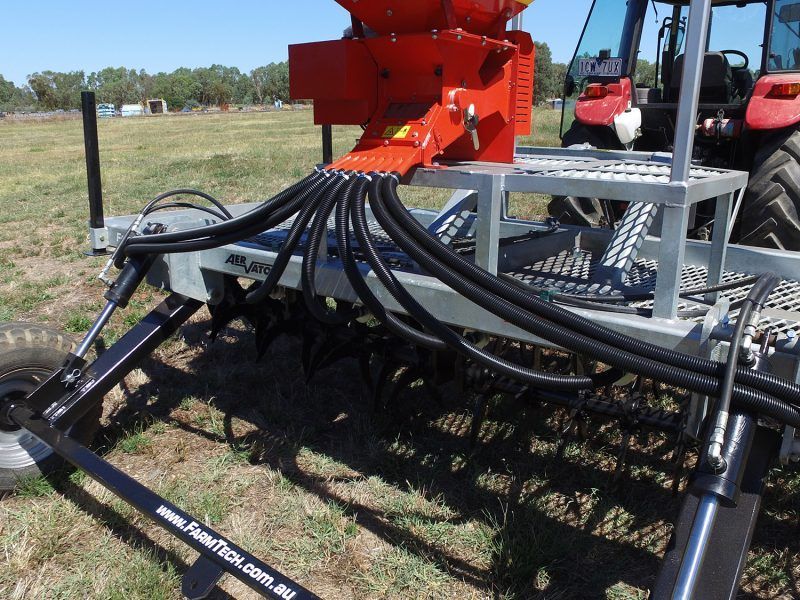Jeantil – Composting Christmas
By Sarina Locke from Canberra 2600
Courtesy: ABC Rural
Thursday, 16/12/2010
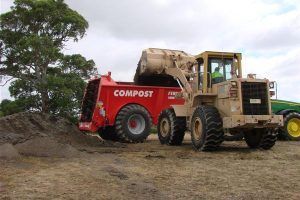
Spreading compost at Gunning, southern Tablelands of NSW with Jeantil EVR 14-12 (Sarina Locke)
What will you do with the food you don’t eat this Christmas?
Maybe you have a compost bin and a busy garden that recycles all your food scraps.
About a third of our supermarket food goes to waste, and 50 per cent of our kitchen waste goes into landfill.
But there’s a slow boom beginning – in farmers demanding such stuff to spread on their paddocks.
At Gunning, Fertspread owner Paul Wyer is gearing up for a big demand in 2011.
“It’s the spuds off your plate, it’s the turkey from your Christmas dinner.
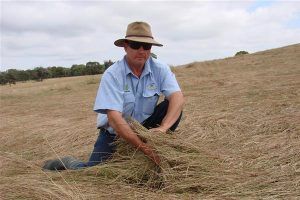
Paul Wyer at Fertspread, Gunning in long grass after one application of compost | Photographer: | Sarina Locke
“That’s what it’s composted from, that’s why it’s such a high nutrient product.”
According to a report last year by the Australia Institute, we throw out $5 billion worth of food every year.
Global Renewables in Sydney is turning household wheelie bin waste into compost, using heat to kill salmonella and botulism bugs, and selling it to fertiliser distributors.
The waste is whiffy in Sydney’s west at the 500 metre long conveyor belt of composting.
The company is producing 50,000 tonnes of compost a year from just three or four suburbs, and Fertspread is taking 20,000 tonnes, and is expecting a boom in demand, as it is economical compared to synthetic fertilisers.
There are bright shiny colourful pieces in the black soft compost. These are tiny scraps of plastics and glass which make up only 1.5 per cent of the compost.
Andrew Harbourne, agronomist – his company is Greenleaf, says the compost is rich with all the trace elements which are good to take from our food back to the paddock.
“You don’t just eat phosphorous, you don’t just eat potassium, or the nitrogen.”
“It has 3.5 per cent calcium, important for helping plants grow.”
The compost is also rich in potassium which is good for grass, oat and wheat yields.
Potassium reserves are in the northern hemisphere, and Andrew Harbourne says it makes sense to recycle K instead of importing it.
The compost is only allowable now under a new regulation.
“It’s called: The organic outputs derived from mixed waste, Exemption 2010.
“Mixed waste is household waste, waste from litter bins, waste from restaurants, pubs, clubs or schools, manures, food waste, animal waste …… etc”
Learn more bout Harrowing


